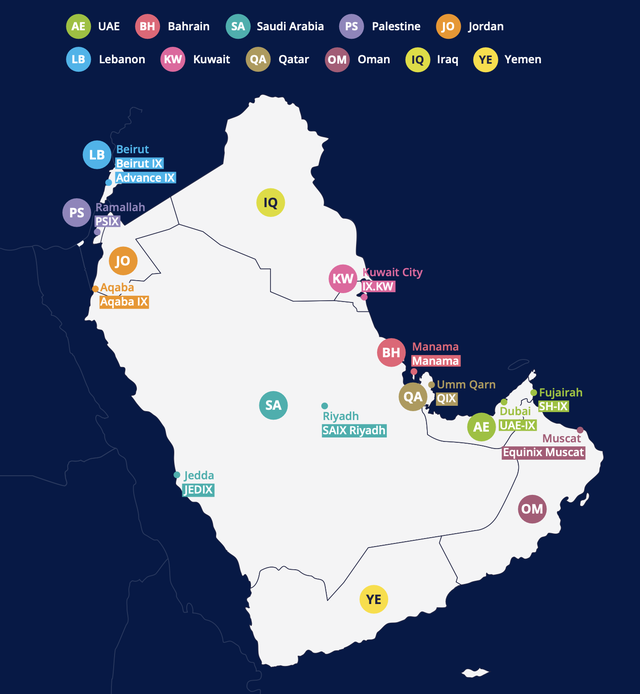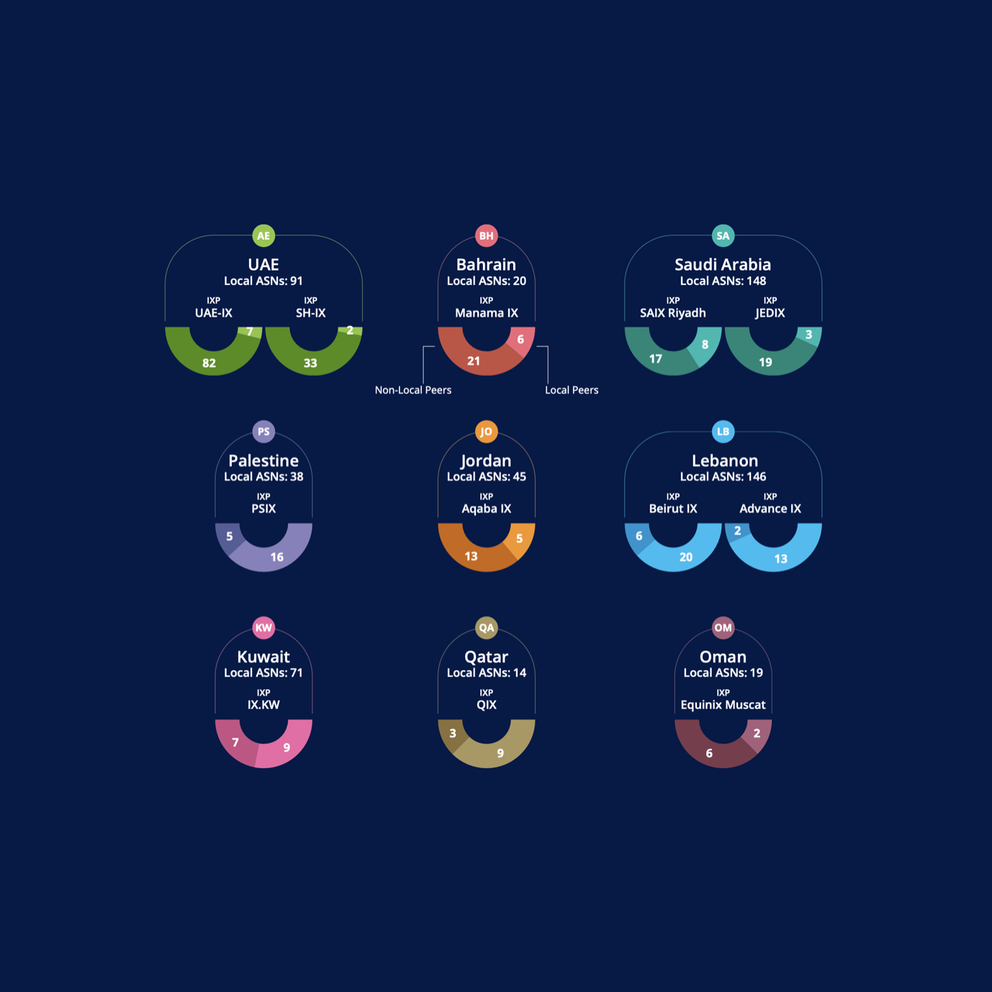What does it take for an IXP to be successful? What requirements are these crucial bits of Internet infrastructure meant to fulfil? Do any of these questions have one-size-fits-all answers? A new report from the RIPE NCC explores all of the above and more in the context of Middle East IXPs.
Our latest report examines the current state of Internet Exchange Points (IXPs) in the Arabic-speaking countries of the Middle East and their role in improving connectivity in the region. We look across a number of factors that help define and better understand whether IXPs in the Middle East are effectively meeting the needs of operators and Internet users in the region.
Overview

The report is divided into four main parts. First, we focus on the importance of keeping local traffic local in order to optimise routing and avoid sending traffic out of the region, which can often lead to higher latency. This brings us to the second part, which looks at how to develop better local interconnects and local IXP players in the region. This is often linked to regulations and infrastructure.
The third and fourth parts of the report then focus on the importance of hosting local content, international players and hyperscalers in local IXPs to accelerate content delivery, contribute to growth and help establish local IXPs as hubs for regional traffic.
We conclude with some forward-looking observations on the future of IXPs in the region and a series of recommendations to ensure the success of IXP operations.
Key findings
Key findings include:
- Laws and regulations are a major factor in the development of IXPs.
- Limiting the oligopolistic control of international gateways improves competition.
- IXPs should adopt open and inclusive membership policies to promote competition and innovation.
- IXPs do not operate in isolation but thrive in an ecosystem.
- Community building is important to share best practices.
- Hosting local content in IXPs further accelerates the distribution of content, contributing to the growth of digital content industries.
- IXPs in the Middle East contribute to the decentralisation of Internet traffic.
- The diversification of global Internet routes increases the stability and security of the entire digital ecosystem.
- Improving global connectivity has a positive impact on the region's competitiveness.
This report is part of the series of Internet Country Reports that the RIPE NCC has produced in an ongoing effort to support Internet development throughout our service region by making our data and insights available to local technical communities and decision makers.
We hope this report is used to inform discussion, provide technical insight and facilitate the exchange of information and best practices.
The full report, along with all of the previous Internet country reports, is available on our RIPE NCC Country Reports page, or you can download it directly right here:
Data Sources
We want to highlight the fact that these Internet country reports are largely based on publicly available data. We hope they give you an idea about the kind of data and analysis that's possible using RIPE NCC tools and services as well as other publicly available sources. If this report inspires you to learn more about those tools and maybe even explore what you can do with the data yourself, check out the following:
Let us know if you have any questions about the data contained in the report, the measurements tools we used, our analyses, or anything else.


Comments 2
The comments section is closed for articles published more than a year ago. If you'd like to inform us of any issues, please contact us.
Robert Leichssenring •
IRAQ-IXP in Baghdad is missing, https://www.iraqixp.com/
Jad El Cham •
Hello Robert! Thank you for your comment. In fact, we are aware of the presence of IRAQ-IXP, but unfortunately data is not publicly available regarding this IXP. The IXP's website does not provide information on the operations of the IXP (such as Governance, operational model, members, traffic, etc.) and their PeeringDB profile also does not reveal much. Having said that, we are actively reaching out and collaborating with all IXPs in the region and hopefully we will be including IRAQ-IXP in future works and analysis.